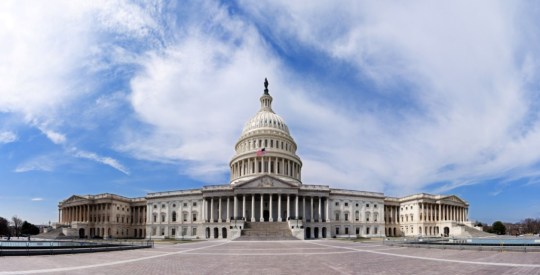The Department of Housing and Urban Development’s lack of oversight into borrower-financed down payment assistance programs for Federal Housing Administration-insured loans puts borrowers and the FHA’s flagship insurance fund at “unnecessary risk,” HUD’s watchdog said in a new report.
According to the report from the Office of Inspector General for the U.S. Department of Housing and Urban Development, HUD “failed to adequately oversee” billions of dollars in loans that may have “questionable down payment assistance,” thereby putting the FHA’s Mutual Mortgage Insurance Fund at risk because of borrowers with higher than market interest rates.
According to the HUD-OIG report, its office conducted audits of lending programs where borrowers are allowed to finance their down payment through an increase in their mortgage interest rate as part of programs administered through housing finance agencies.
Those audits found that HUD “failed to adequately oversee more than $16.1 billion in FHA loans that may have been originated with borrower-financed down payment assistance to ensure compliance with HUD requirements,” the OIG’s report stated.
The report also showed that from Oct. 1, 2015 to Sept. 30, 2016, HUD guaranteed nearly $12.9 billion in FHA loans that “may contain questioned assistance.”
The report details further how those loans came about.
As the report notes, down payment assistance from governmental entities, like as housing finance agencies, is not prohibited by HUD and FHA rules, but the structure of the assistance provided through these programs did not comply with HUD requirements.
Under these down payment assistance loans, FHA borrowers were placed into a premium interest rate to pay for the assistance and, repaid the assistance through higher mortgage payments and fees.
According to HUD-OIG, this happened because HUD “lacked strict controls” over government entity down payment assistance.
“Despite the prohibition against similar seller-funded programs, HUD’s requirements and guidelines appeared to have contributed to and enabled the growth of these questionable borrower-financed down payment assistance programs,” the report states. “In addition, HUD did not adequately track these types of loans and did not review the actual structure of down payment assistance programs from government entities.”
And according to the OIG, in spite of concerns raised by the watchdog about the down payment assistance programs, HUD failed to protect FHA borrowers from the higher monthly mortgage payments and higher fees, which also increased the risks to the FHA’s MMI Fund in the event of a borrower’s default.
The audits in question come from two FHA lenders, NOVA Financial & Investment and loanDepot.
The report states that OIG determined that the lenders originated and insured FHA loans with down payment assistance that “did not always” comply with HUD’s rules.
Additionally, the lenders “improperly charged” down payment assistance-related fees that were not “customary or reasonable.”
The audits also found that the borrower-financed down payment assistance programs “violated HUD’s mission, established law, and guidance because the borrowers essentially financed their own down payment assistance, rather than receiving down payment assistance in the form of a true gift or secondary financing.”
According to the report, NOVA “put the FHA mortgage insurance fund at unnecessary risk,” including the potential loss of $48.5 million from 709 loans that contained “questionable down payment assistance.”
The report also referenced HUD-OIG audit of loanDepot released in 2015. That report showed that the lender “put the FHA mortgage insurance fund at unnecessary risk” with “questionable down payment assistance.”
In this latest HUD-OIG report, the agency suggests that HUD’s “inadequate oversight controls” allowed these issues to spread.
“Although HUD’s quality control process reviewed FHA loans originated with down payment assistance, the reviews were limited and not designed to identify questionable down payment assistance, as was found in OIG’s three external audits,” the report states.
“Specifically, HUD quality control reviews focused on ensuring compliance with required gift and secondary loan documentation requirements,” the report continues.
“HUD did not review the funding structure of HFA down payment assistance programs to determine compliance with FHA requirements and guidelines,” the report continues. “HUD’s disregard in this area was careless, and assuming that the HFAs and their related partners would structure their programs to ensure absolute compliance with HUD requirements and guidelines presented an unnecessary risk.”
The OIG report lays out six recommendations of where OIG believes HUD can improve its policies to ensure that this situation doesn’t repeat itself. Those six recommendations are:
1. Reconsider its position on questioned borrower-financed down payment assistance programs
2. Develop and implement policies and procedures to review loans with down payment assistance
3. Develop requirements for lenders to review down payment assistance programs 4. Require lenders to obtain a borrower certification that details borrower participation
5. Ensure that lenders enter all down payment assistance data into FHA Connection
6. Implement data fields where lenders would be required to enter specific down payment assistance information
It should be noted that HUD disagrees with much of what the OIG’s report found, responding to the OIG report with a 13-page letter denying many of the report’s findings.
To read the report in full, along with HUD’s response, click here.





